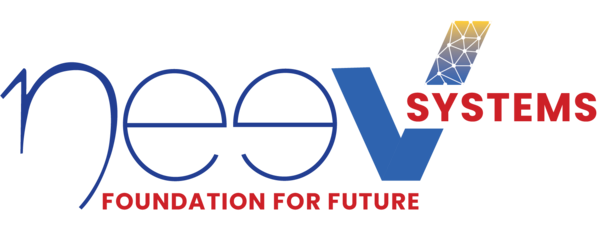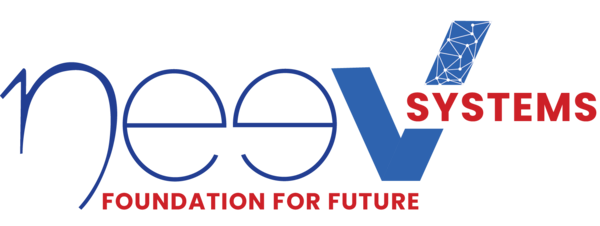Executive Summary
Automation is transforming Oracle E-Business Suite (EBS) from a traditional ERP system into a strategic business asset. By implementing robotic process automation (RPA), organizations can eliminate inefficiencies, reduce costs, and gain real-time insights for smarter decision-making.
This blog explores key capabilities, challenges, and solutions, supported by real-world success stories, to showcase how Neev Systems can help businesses optimize Oracle EBS for competitive advantage.
Key Takeaways
- Identify and automate manual workflows in Oracle EBS to boost efficiency, reduce costs, and support growth.
- Implement robotic process automation for critical processes like invoicing, HR, financial reporting, and compliance to minimize errors and enhance outcomes.
- Partner with experts to streamline training, clean data, and ensure timely system updates during automation initiatives.
- Invest in optimization to unlock cost savings, gain real-time insights, and scale operations for a competitive advantage.
Your finance team spends hours on manual reconciliations while competitors close books in minutes.
Your procurement team juggles spreadsheets, while others use integrated tools to secure better deals and avoid delays.
If these scenarios sound hypothetical to you, great. If not, it’s time to get your act together.
The gap between traditional systems and modern, agile operations is widening, and every delay in adopting digital solutions puts your business at greater risk of being left behind.
In today’s hyper-competitive market, Oracle EBS serves as the central nervous system of many organizations. However, without optimization, it’s like driving a high-performance sports car with the parking brake engaged. Automation is no longer a futuristic concept—it’s a present-day differentiator that separates market leaders from those struggling to keep pace.
This blog explores how leading companies leverage automation to transform Oracle EBS into a catalyst for intelligent workflows and real-time insights. The real question isn’t if you can afford to optimize but whether your business can thrive without it.
Key Capabilities of Oracle EBS Businesses Can Leverage
Oracle EBS provides a centralized platform to streamline operations across financial management, supply chain, manufacturing, HR, and customer relationship management (CRM). Key features include:
- Modular Architecture: Implement specific functionalities while maintaining seamless suite integration.
- Deployment Flexibility: Supports both on-premise and cloud-based deployments.
- Scalability: Adapts to businesses of all sizes.
- Customization Options: Tailors workflows to meet unique business needs.
These capabilities make Oracle EBS a powerful tool for businesses—but only when optimized.
What About the Challenges?
Yes, Oracle EBS offers many advantages, from cost reduction to enhanced operational efficiency. However, implementing and managing such a robust system is not without its challenges.
Without a proactive strategy, organizations may struggle to unlock the full potential of EBS. Here are five critical challenges associated with using Oracle EBS:
User Training | Resistance to change and lack of understanding can slow adoption.
|
Environment Testing | Insufficient testing can compromise system performance.
|
Data Management | Outdated or disorganized data reduces efficiency.
|
System Update | Delayed updates lead to inefficiencies and security risks.
|

Traditional Oracle EBS is hindering your workflow
Why You Should Automate Your Oracle EBS
If your Oracle E-Business Suite is still relying on manual processes, you’re not maximizing its potential. Automation can drastically reduce inefficiencies, improve accuracy, and free up resources to focus on strategic priorities.
However, the reality for most organizations (without automation) looks like this:
| The cost of inaction |
|
| Quantifying the impact |
|
| Why now is the time to make the switch |
|
Modernizing Oracle EBS with Robotic Process Automation (RPA)
Robotic process automation for Oracle EBS has evolved significantly since its inception in the early 2000s. 60% of organizations from different industries believe that RPA will have a significant role in supply chain management by 2025. This is just an initial indicator of how RPA will revolutionize different processes.
Initially designed to reduce costs, it is now a versatile productivity tool that automates human tasks by replicating steps through orchestrated UI interactions, scripts, or bots. When integrated with Oracle EBS, RPA modernizes operations and streamlines mission-critical functionalities, making it an essential part of digital transformation.
Why modernize Oracle EBS with RPA?
- Modernizing Oracle EBS with RPA enhances efficiency and prepares organizations for future growth.
- With Oracle discontinuing Premier Support for EBS versions before R12.2 as of December 2021, upgrading and automating are now imperative for organizations looking to stay supported and secure.
What you can automate in Oracle EBS
RPA enhances Oracle EBS by automating repetitive, time-consuming tasks. This enables organizations to improve efficiency, reduce errors, and free up resources for more strategic activities.
Here are some key areas where RPA can be implemented:

Optimizing Supply Chain Insights for a Global Manufacturing Leader
Client Overview
A global manufacturing leader with diverse product lines faced significant challenges in supply chain and order management due to data silos within its legacy Oracle ERP system. The absence of a unified data platform and real-time insights hindered efficient decision-making, impacting operations and scalability.
Challenges
- Data Silos: Critical data confined within Oracle ERP limited accessibility and analysis.
- Scalability: Existing infrastructure couldn’t meet growing global data demands.
- Complexity: Integrating multiple platforms presented significant challenges.
- Real-time Updates: Sales representatives and procurement managers lacked immediate insights into orders, inventory, and production trends, delaying decisions.
How Neev Systems Helped
Neev Systems implemented an end-to-end solution:
- HevoData Integration: Automated ETL processes for seamless data flow from Oracle ERP to Snowflake.
- Snowflake Data Warehouse: Built a scalable, cloud-based platform for data storage and modeling. This helped the transition of Oracle E-Business Suite data to Oracle Cloud Infrastructure (OCI).
- Tableau Reporting: Enabled dynamic dashboards and real-time analytics for stakeholders.
Results
Post-implementation, the client achieved:
- A 360-degree view of supply chain operations.
- Real-time inventory insights and shipment tracking.
- Automated workflows, reducing manual errors.
- Scalable infrastructure to accommodate future growth.
- Enhanced decision-making with enriched, actionable data insights.

Struggling with inefficiencies in your Oracle EBS workflows?
How Automation Can Help Your Oracle EBS Suite
Integrating robotic process automation with Oracle EBS transforms how organizations operate to deliver efficiency, consistency, and scalability.

Automating Manual Business Processes with Oracle Fusion Cloud
Client Overview
Duraflame Inc. is America’s firelog brand leader, offering firelogs, firestarters, and barbecue products. With over 50 years of experience, the duraflame® brand stands for quality, reliability, and environmental sustainability.
Challenges
Duraflame faced challenges from relying on multiple vendors, leading to inefficiencies, delays, higher costs, and unmet customer expectations.
Solutions by Neev Systems
Neev Systems implemented a unified solution, including:
- Oracle Cloud Implementation: Financials (FIN), Supply Chain (SCM), Manufacturing (MFG), Planning, CPQ, Fusion Analytics Warehouse (FAW), and PBCS.
- Integration Services: Middleware Java applications, banking systems, and EDI systems.
- Automation: Automated manual processes and path validation, ensuring reliability.
- Support Services: Ongoing support for Oracle Fusion Cloud, Middleware, and custom applications.
Benefits Achieved
- Streamlined Processes: Reliable, scalable workflows replaced disjointed systems.
- Enhanced Efficiency: Automation reduced errors and improved scalability.
- Cost Savings: Consolidation lowered costs and optimized resource use.
- Improved Communication: Integrated systems ensured smooth collaboration.
Customer Satisfaction: Efficient operations met customer needs better.
Identifying Critical Gaps in Implementation
Implementing automation in Oracle EBS can also result in challenges. Here are a few and how businesses can navigate them:
Integration Challenges
- Legacy Oracle EBS systems often lack out-of-the-box compatibility with modern automation tools. Integrating RPA or advanced analytics solutions requires significant middleware investment and technical expertise.
- Poorly planned integrations can lead to data silos, misaligned workflows, or disruptions in existing operations.
- To mitigate these risks, businesses must prioritize integration testing, design middleware solutions tailored to their infrastructure, and engage automation partners experienced in Oracle systems.
Process Complexity
- Highly customized Oracle EBS environments often involve intricate workflows that are difficult to standardize and automate. Businesses must identify processes that deliver the highest ROI when automated and focus on those first.
- A phased approach initially targeting simpler, high-impact workflows can help businesses build momentum and address more complex processes over time.
Scalability Limitations
- Many automation solutions are initially deployed for specific tasks or departments but struggle to scale organization-wide. This can limit the long-term value of the investment.
- Businesses should evaluate the scalability of automation tools during the selection process and ensure that chosen solutions can accommodate future growth and evolving operational needs.
Why Choose Neev Systems?
Today’s business environment is dynamic, and the pressure to optimize and innovate has never been greater. Oracle EBS optimization through automation isn’t just a luxury but a necessity to stay competitive. Businesses that delay modernization risk inefficiencies incur higher costs, and miss opportunities. While those that embrace automation streamline processes, increase agility, and get substantial cost savings.
Neev Systems Neev Systems brings unparalleled expertise in Oracle EBS optimization solutions. As a certified Oracle partner, our 360-degree strategy covers planning, implementation, support, and optimization. By leveraging automation, we help businesses streamline processes, reduce costs, and gain a competitive edge.
Don’t let inefficiencies hold you back. The future is automated—and it starts with the decisions you make today.

Run a smoother, faster, and smarter business

Ashish Goswami
Ashish has over 20 years of global IT services experience in Oracle Applications and Oracle Fusion Cloud. Throughout his career, he has built successful, long-lasting partnerships with customers, driving transformational IT initiatives across various industries. In his current role, he leads the Oracle practice at Neev Systems, overseeing large teams, managing global support, driving multiple service lines, and spearheading new technology adoption and automation efforts. His passion lies in delivering exceptional results and ensuring customer satisfaction.


